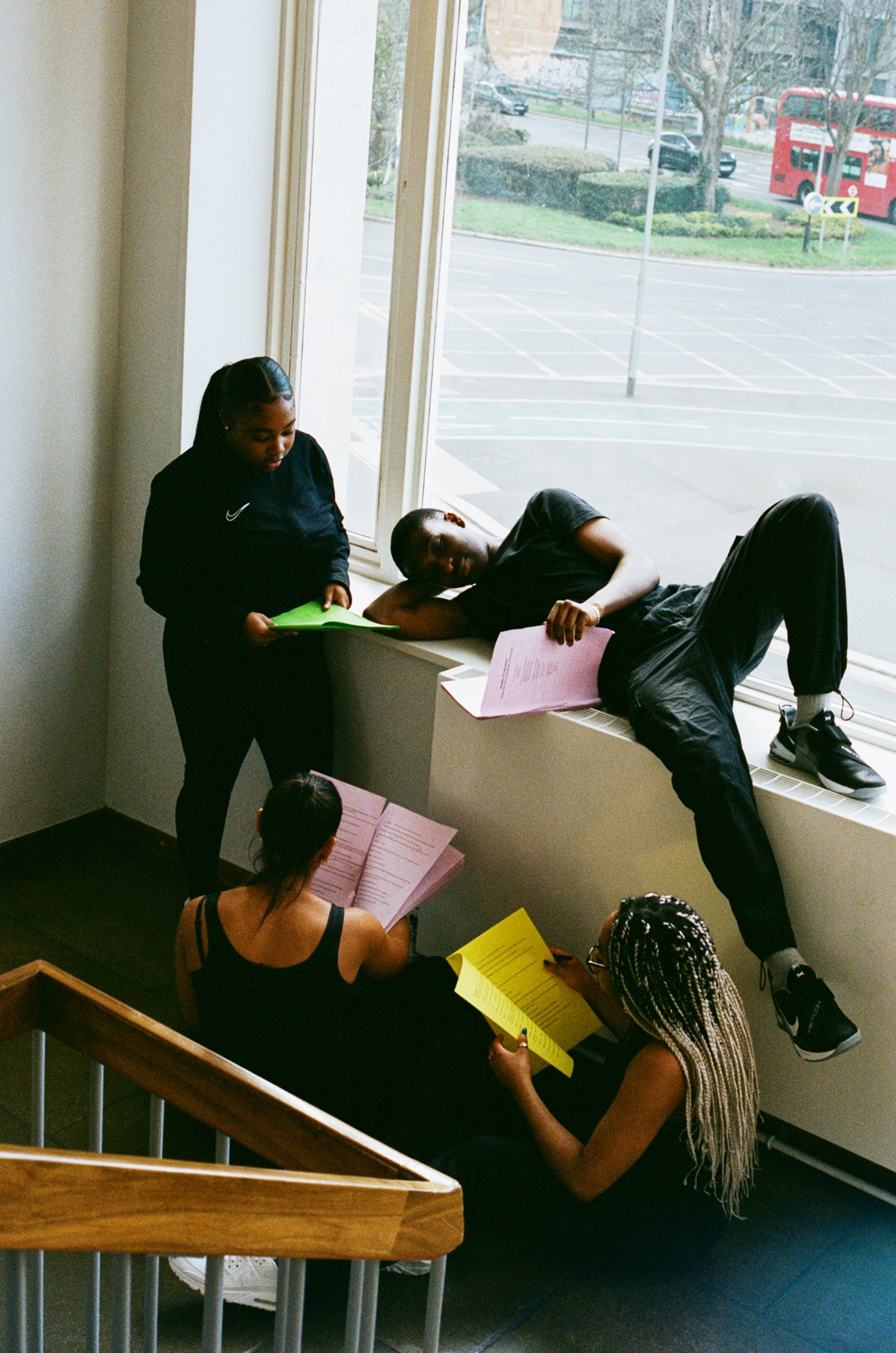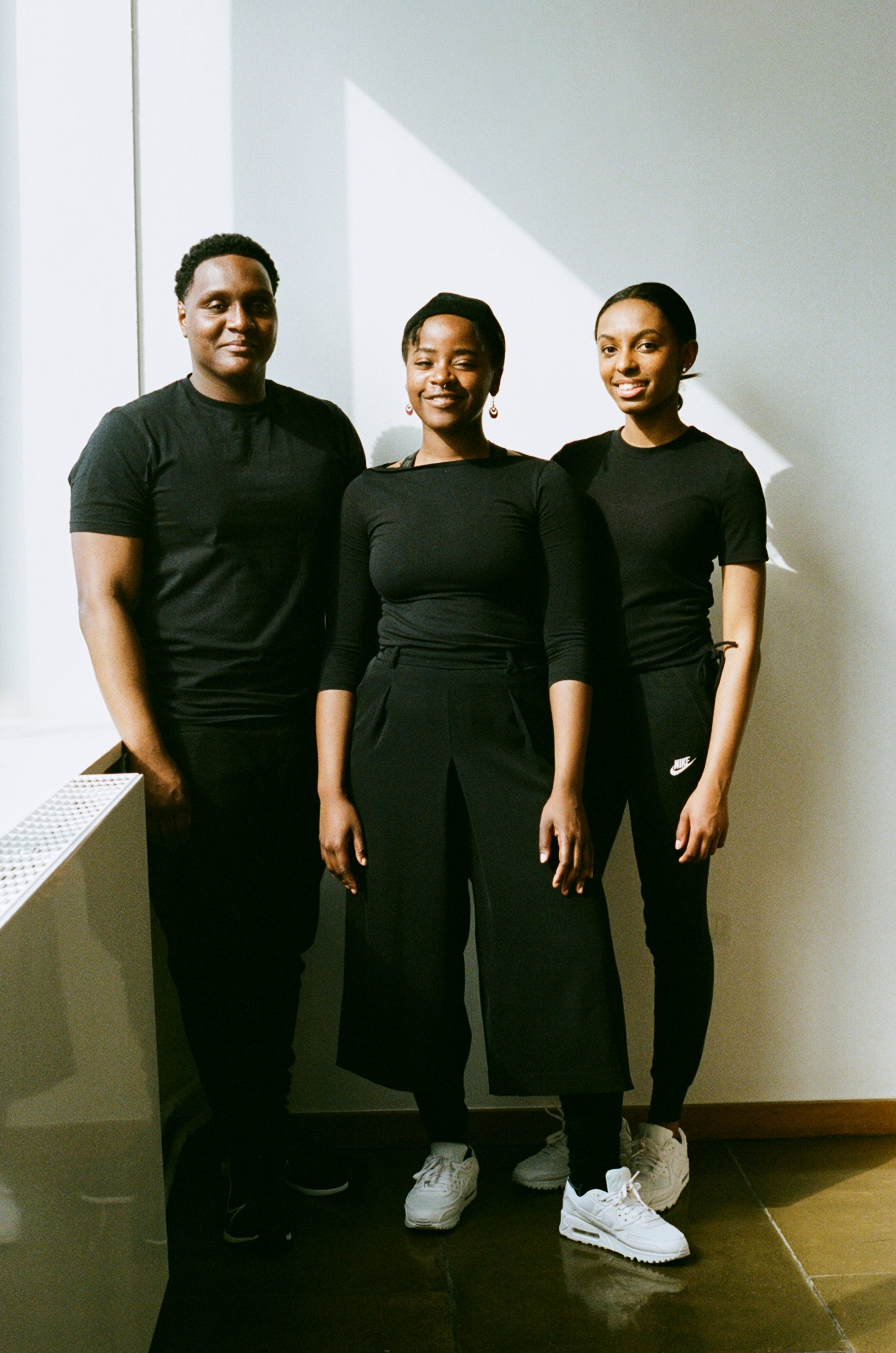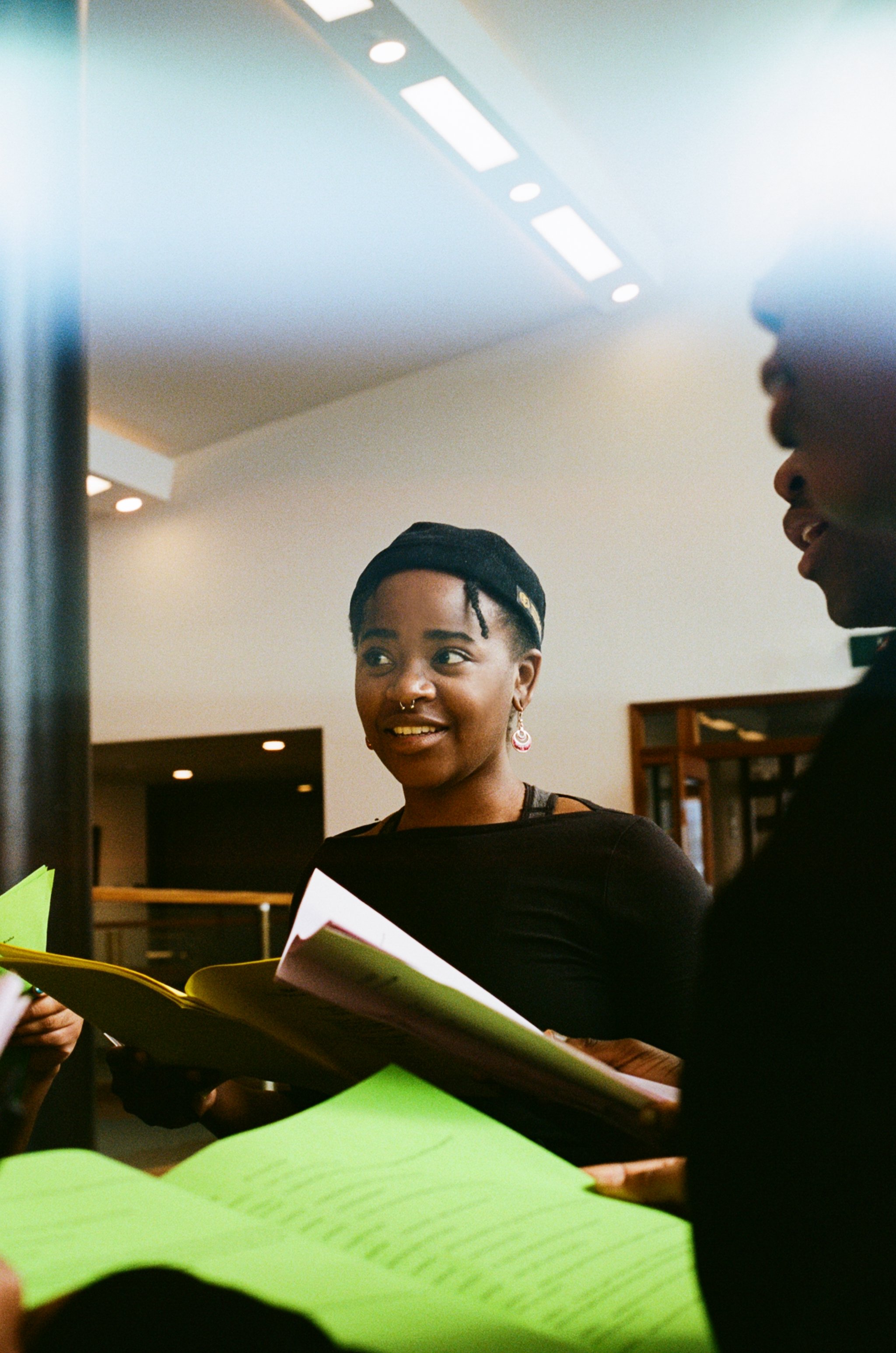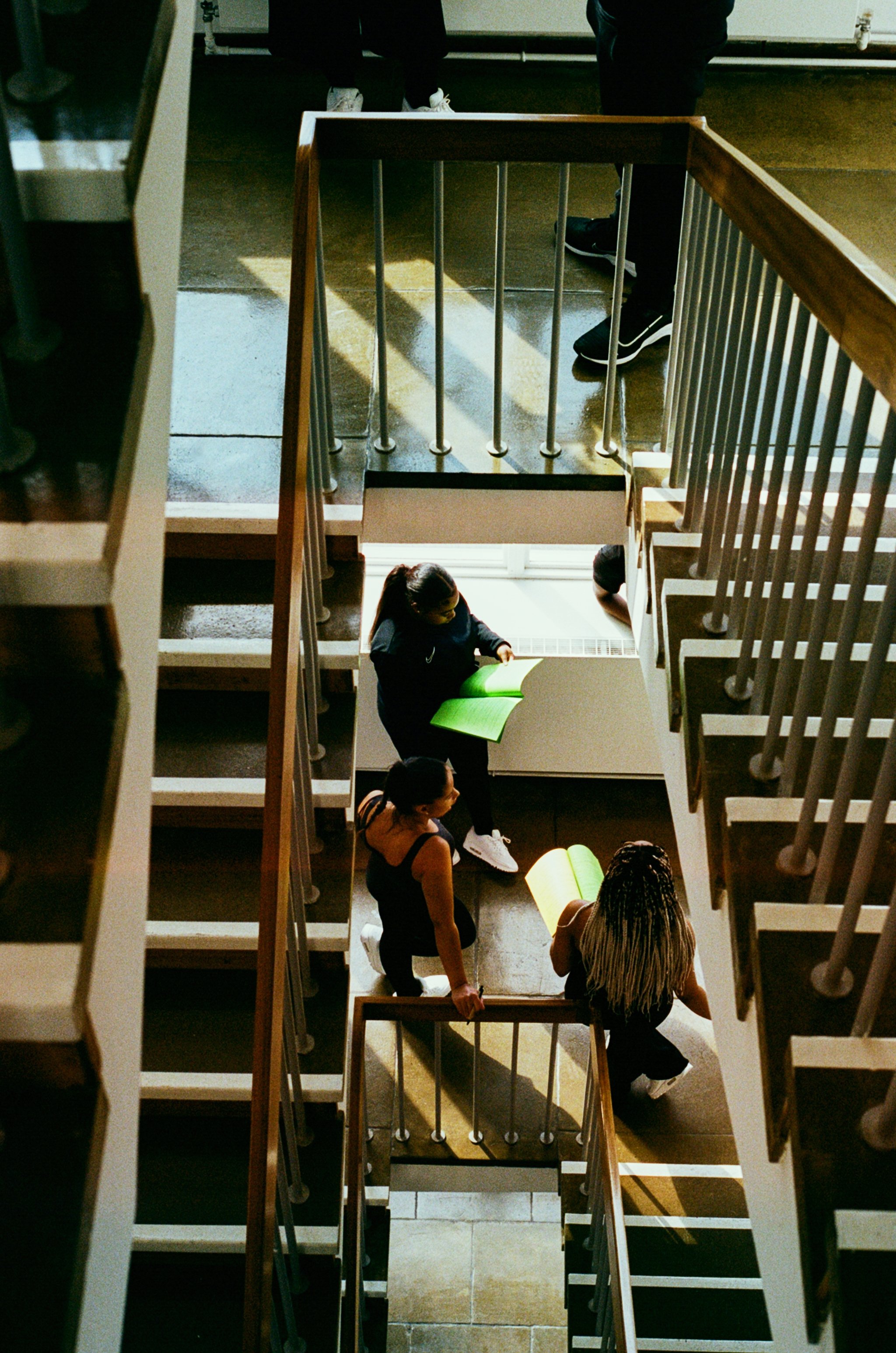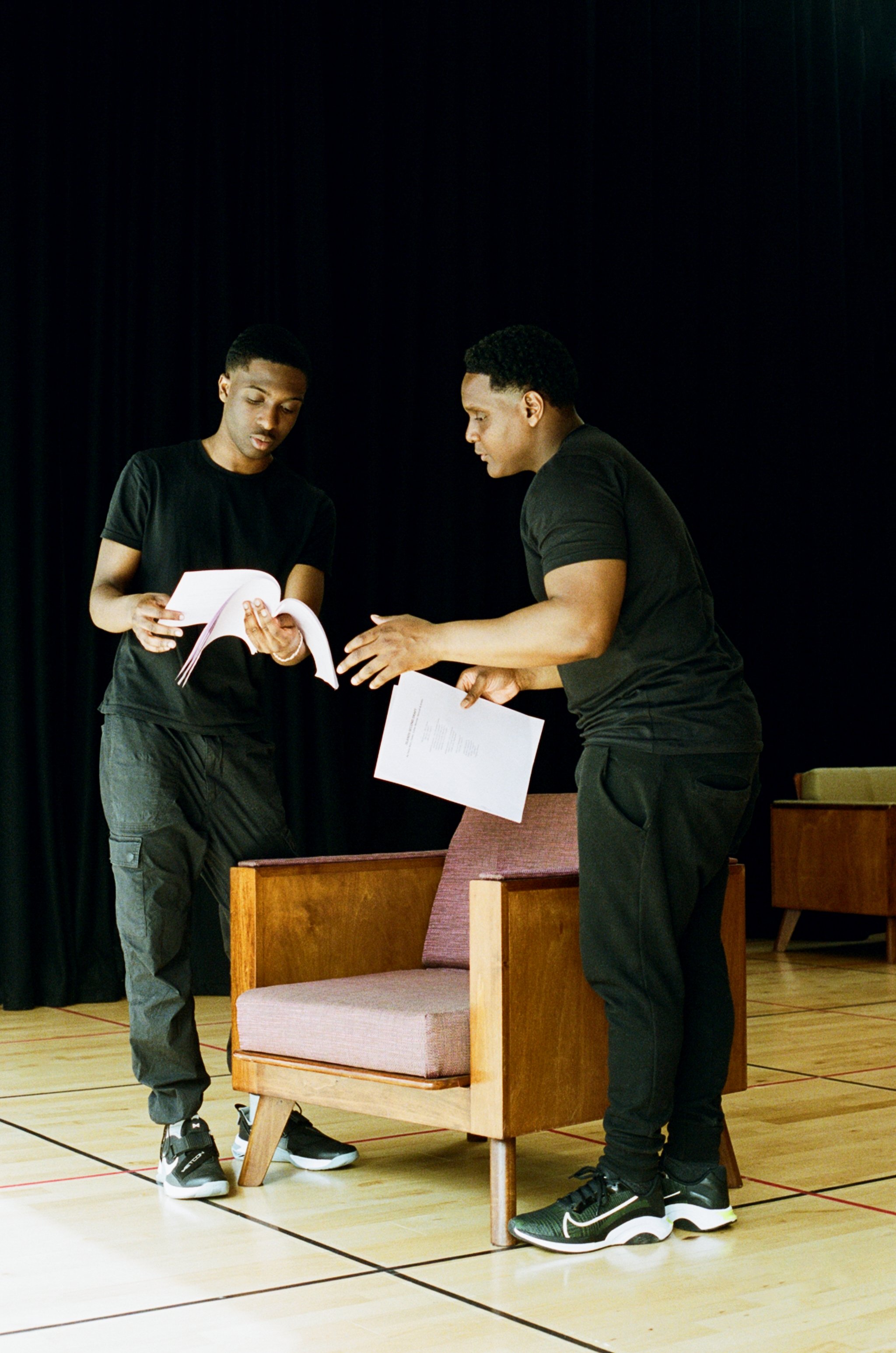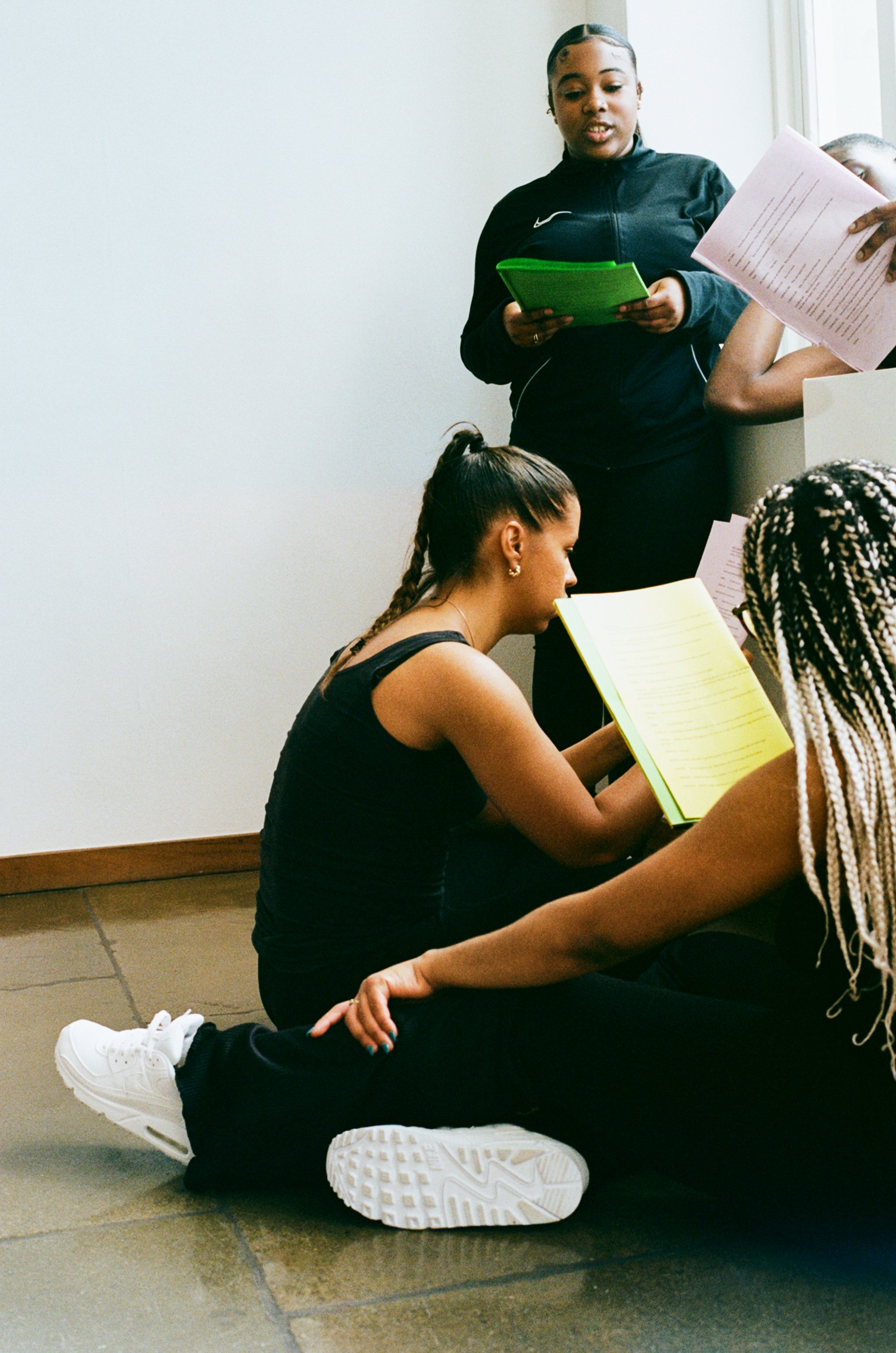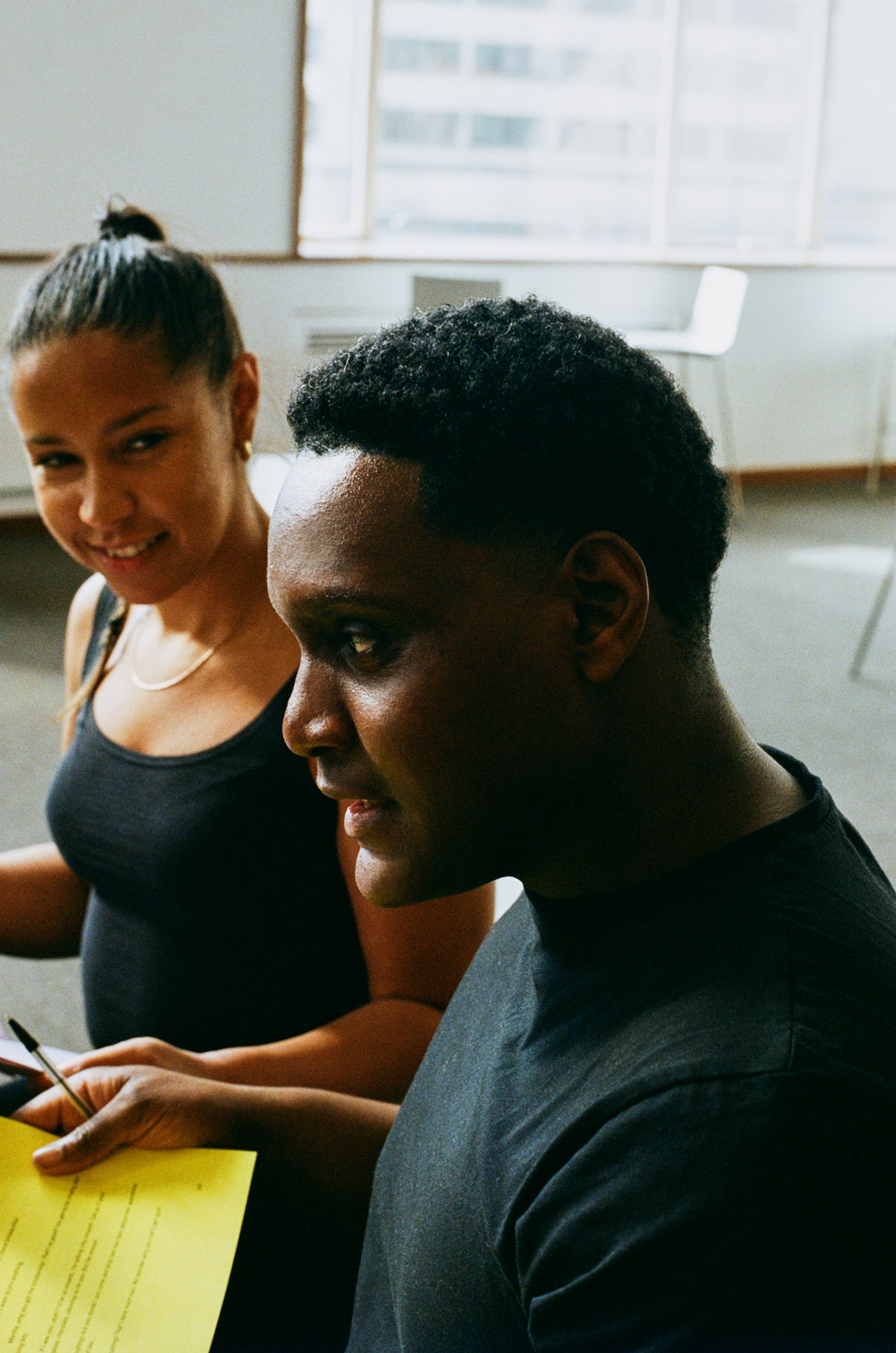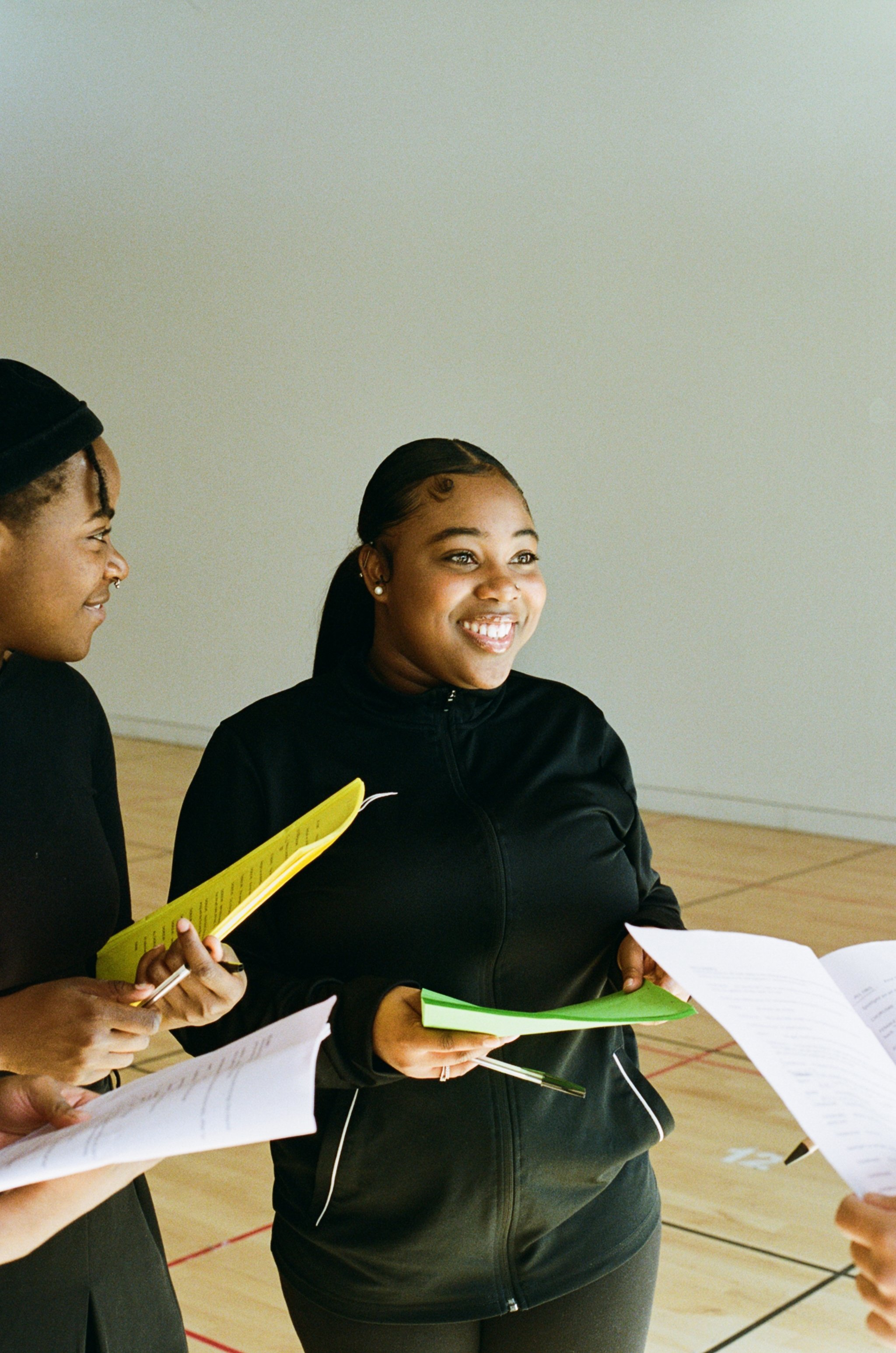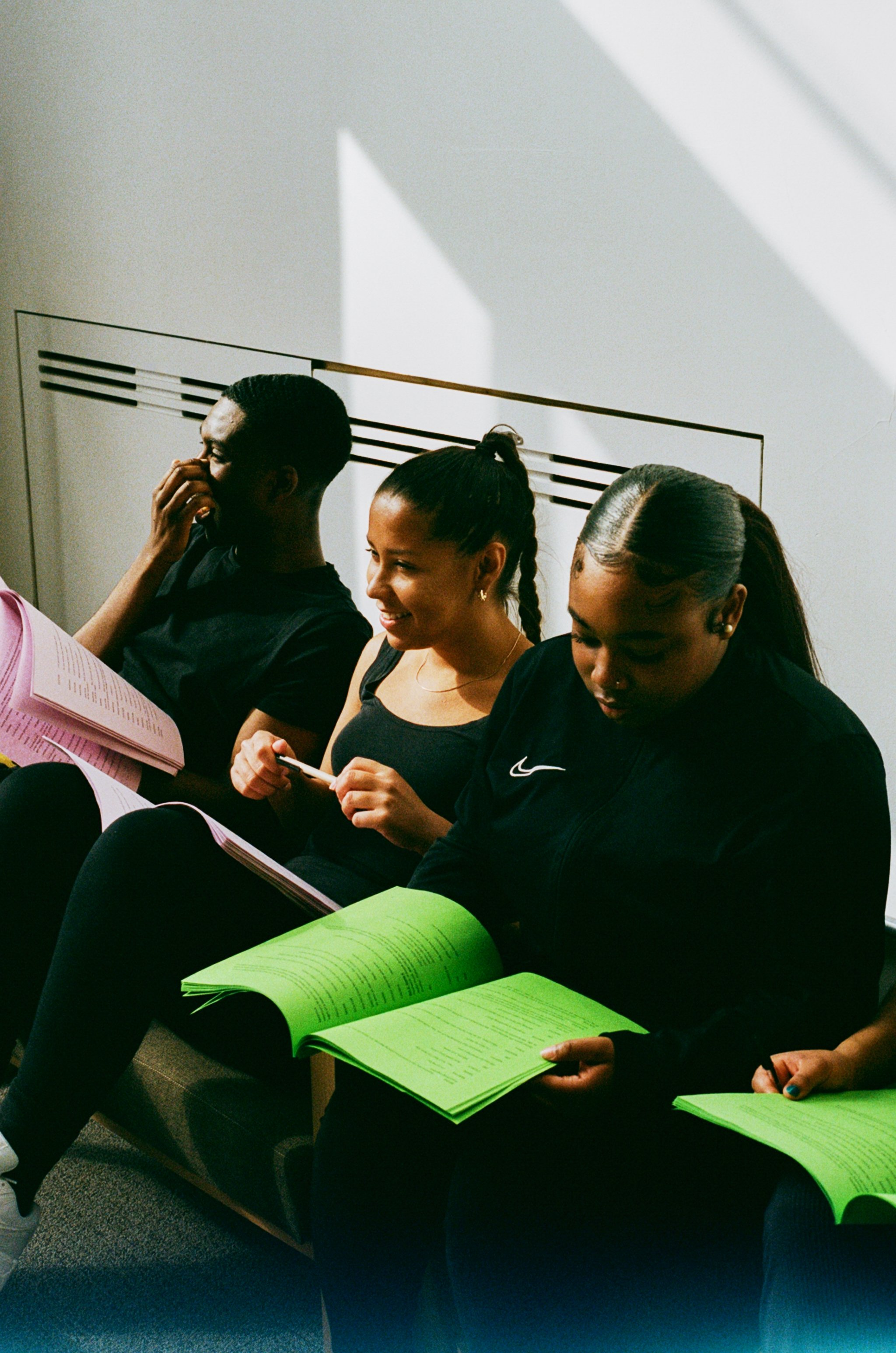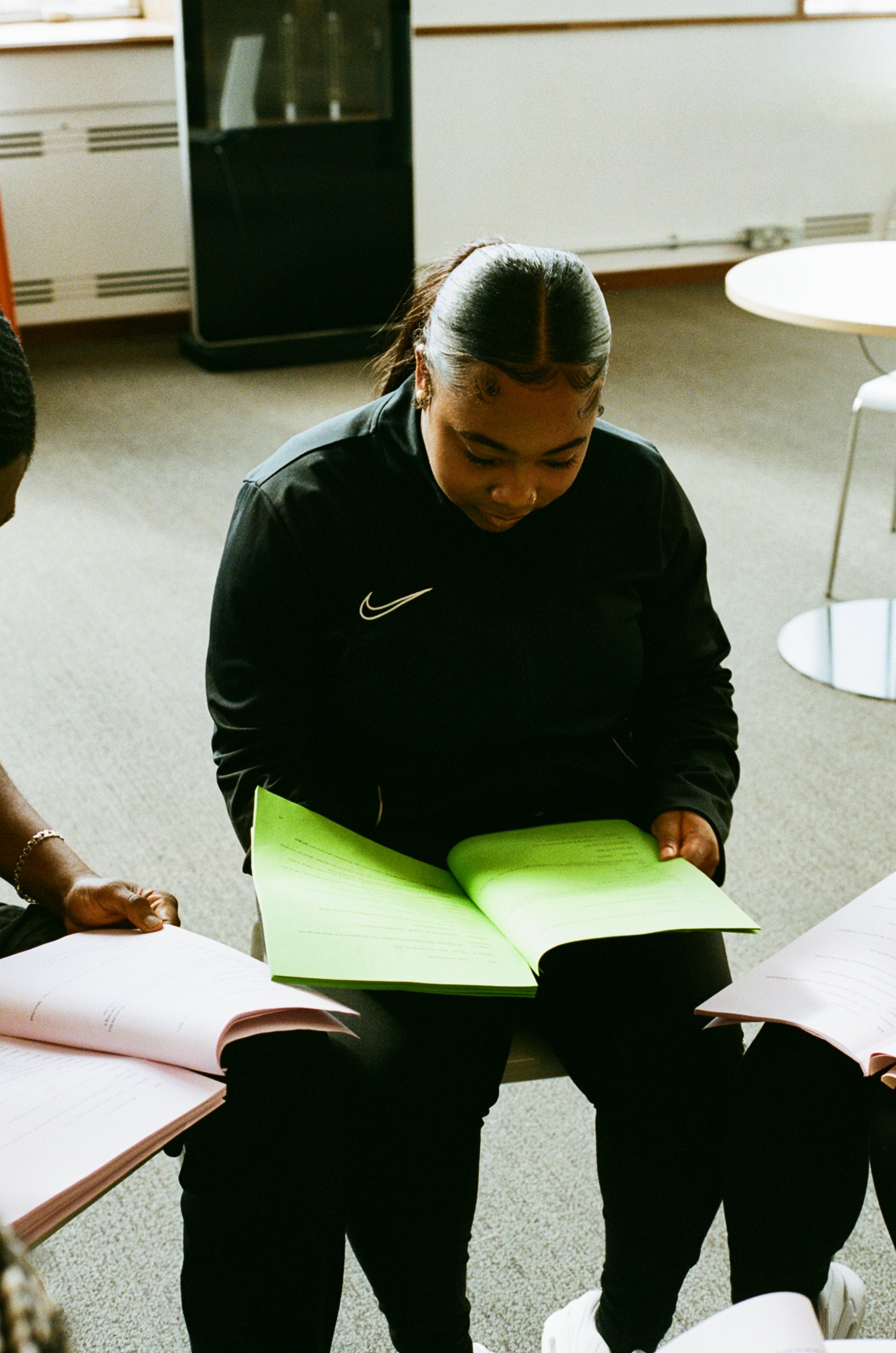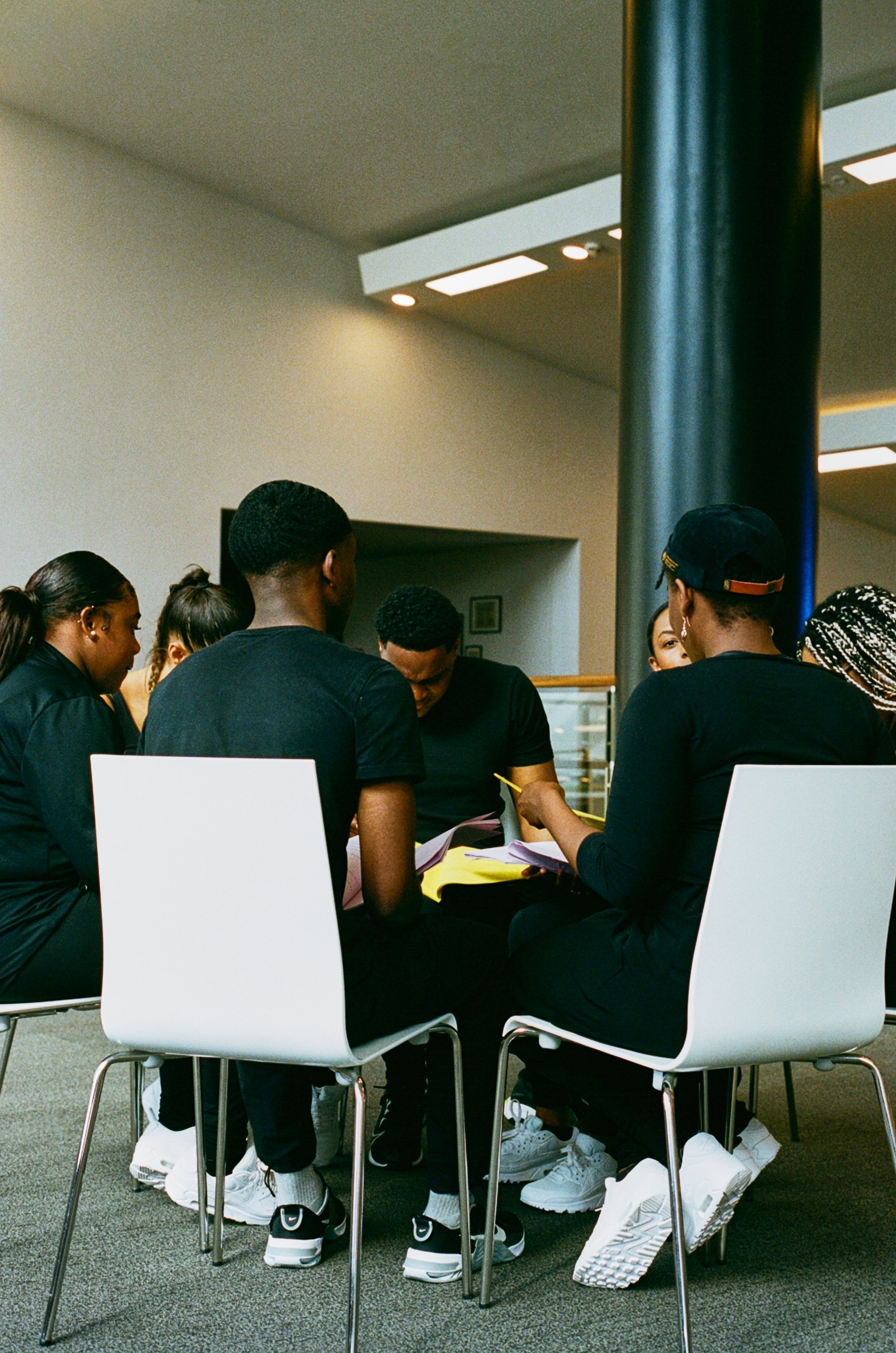Dreams of Tomorrow Made in Theatres of Today
Talawa Theatre is the theatre production company tackling the lack of diversity behind the scene and on our stages by handing the baton to the next generation of Black talent.
Organisation: @talawatc
Photographer: @ejatushaw
Creative Director: @roena
Creative Lead & Stylist: @jermainerrobinson
Interviewer: @nlalleyne
In collaboration with creative agency: @vibecalledtech @lewisdaltongilbert
Special thanks to: @nikelondon
In the world of theatre, Black talents are disproportionately affected by systemic issues such as elitism and gatekeeping, compared with white counterparts. As a result, the career growth of Black theatre makers is often stifled, meaning we are robbed of their talent, insight and multidimensional, authentic depictions of our society. Talawa Theatre works to champion Black talent, break glass ceilings and circumvent systemic limitations.
TYPT, Talawa’s Young Persons Practice Based Training, is a year-long programme that specifically nurtures young Black talents, aged 18-25, by bringing them into collaboration with other industry established Black theatre makers to develop skills and boost confidence, while co-creating a brand new production.
Supported by the Nike London Grant Initiative, TYPT 2022 is being championed by a pot set up to support non-profit organisations that are working hard to provide equitable access to skills and opportunities for Black youth in sports, wellness and arts.
I caught up with four TYPT participants working in the different spheres of writing, acting and production, to explore the joys and challenges of being young, Black and trying to forge a path in theatre.
Natalie: Is there magic in theatre?
Romario, Actor: Yeah, I would say there’s magic in theatre, because it can transport you into another world, and make you think about aspects of life you never would’ve considered before. I believe that theatre is a place where your fears, ambitions, insecurities, joy and love can be shown in its purest form.
Hannah, Writer: As a writer, it’s also magical to see something you individually imagined in your head come to life through collective contributions – it’s only because everyone’s playing their part that theatre works.
Natalie: Describe theatre to me, how does it make you feel?
Martine, Actor: Freedom of exploration, transportation, escapism, reflection of life. An exploration of what “is” and what could “be”.
Patryce, Production Arts: Energetic, passionate, exhilarated, engaged. I think it can also feel quite liberating, and at times therapeutic.
Natalie: What impact do you feel theatre has had on society and culture?
Patryce: I feel like one of the major impacts of theatre on society is its ability to evoke social discourse, and often push for societal change. Yes, theatre is a form of entertainment, but it is frequently able to socially critique the world around us. It’s an intimate space that provides a platform for a diverse range of voices; sharing experiences that people can either identify with or be educated by, showcasing different perspectives.
Hannah: In a lot of ways, the current theatre landscape reinforces elitism. This is why companies like Talawa are so important: they create theatre specifically for the Black community and directly challenge the idea that theatre is exclusive. While I don’t think theatre in itself can lead social change – you still need protests, government change, and so on – what theatre can do is highlight issues that otherwise might be buried, as seen in the Bush Theatre’s production of Red Pitch.
Natalie: As a young Black person, how can approaching one's dreams in theatre feel?
Martine: It can feel “qwhite” scary sometimes, like it’s more about “who you know” or you can be put into a box. It definitely feels elitist, and that those who have the connections or money will get further in the industry. The industry can also feel like it is exclusionary because of the stories they share. At points they don’t have stories that show our perspectives, or even have space for us to be in. Some of the opportunities offered for Black roles can be stereotypical when we and our stories are so much more than that. It can at times feel like we’re being squeezed in to “fill the quota” and tick boxes.
Romario: There is a hierarchy in theatre. Those that come from higher economic backgrounds have more access to things, such as drama schools and acting coaches, because of their high price points. I would say in terms of theatre it has improved in the past few years, in the types of roles young Black men are being put up for, such as Red Pitch, and For Black Boys Who Have Considered Suicide When the Hue Gets Too Heavy. These conveyed different aspects of the Black British living experience, and not just the usual thug roles.
Natalie: Is this experience any different for Black folx aspiring to work on stage compared to those aspiring to work behind-the-scenes?
Patryce: I think it’s similar for those backstage as well as onstage, where this sense of hierarchy and barriers persist. I think Black folx working behind-the-scenes are considerably underrepresented – especially in stage management roles. In my personal experience, I would say it’s hard to know where to begin in terms of getting into these roles.
Hannah: As a Black writer, I’m always excited to connect with other Black writers, which I think indicates that there’s still a shortage of us. However, it’s different as a writer: most of your time is spent writing alone, so what really matters most is what’s going on inside my head. It’s important to me to connect with other writers so that I don’t lose my drive to write about my community – so that I don’t compromise my work so that it’s more likely to get staged or produced. Which also points to the importance of having more Black gatekeepers, such as theatre Artistic Directors and TV producers. It’s great that there’s not a shortage of Black theatre companies in London trying to nurture your talent.
Natalie: How does gatekeeping affect the craft?
Romario: Gatekeeping limits the craft by not allowing new people, who may have a new outlook on life and the industry, to shape the way theatre is presented. This in hand will negatively affect theatre, because theatre is meant to be a mirror of society.
Patryce: Theatre’s composition of predominantly white male gatekeepers limits the craft in a variety of ways. Through centring predominantly white audiences, there may be a pressure for Black stories to be commissioned for this gaze in order to be commercial and appeal to a core demographic; with the decisions of what will be commissioned being made by the same people, adhering to the structural racism prevalent in the arts sector. I feel like this can limit the plurality of narratives and stories, control what kind of diverse stories are told, and risk presenting a monolithic Black experience.
Natalie: What’s been your highlight working with Talawa?
Martine: To be able to discuss and share our thoughts and feelings about some topics that are still not really talked about much. It was a safe and open space free for us to say our piece with no filter, and to feel supported within that.
Romario: My highlight working with Talawa is being in a room with like-minded Black creatives that want to change theatre forever.
Hannah: Sometimes it can feel like you’re crazy pursuing a career in the arts – did my family really come to the UK for me to be living at home with my parents at 23, waiting for my career to really begin? But at Talawa, we’re all in this position. I’ve never been in this position before. Usually, I’m in a room with people who want to be artists, but whose backgrounds are so different from my own that I still wonder whether this is the right industry for me. But if I can have a career where I’m in rooms with people like this Talawa group forever, I’ll lead a very fulfilling life.
Natalie: How could initiatives like TYPT affect the future of theatre?
Martine: It gives people the opportunity to be creative and free whilst working in spaces where people look like them, and have some similar cultural and historical understanding. It does wonders to step into a room and not feel “othered” – we can just “be”.
Patryce: I feel initiatives like TYPT provide accessible spaces and platforms for emerging Black artists interested in theatre to train and develop their craft, or try out a new craft. They provide confidence for artists, along with continuing to build a larger community of Black artists. I feel like they’re important, as they provide a good foundation for gaining industry skills and experience, which is invaluable for people as they follow their path and progress. I think they’re also important because they centre blackness, actively working against gatekeeping in theatre.
Natalie: Are you hopeful about your future in theatre?
Martine: Yes I am hopeful, and TYPT has helped me feel more hopeful about it too. I have met an amazing group of creatives who I have learned a lot from, and had the chance to work with. It’s given me the confidence to believe in what I can bring to the table.
Patryce: I am; I’m excited to continue exploring and developing my craft, and trying to get involved in as much as possible.
Romario: I feel my future in theatre is going to be ground-breaking. I truly think that I as an individual have something to contribute to theatre and I have something to say.
Hannah: I think you have to be hopeful. This sometimes feels like blind faith, so sometimes I feel disillusioned; but I won’t give up, because I’ve now surrounded myself with people who are in the same position as me, and inspire me to keep chasing my dream. Ultimately, I’ve realised that writing is what makes me happy and gives me purpose in life, so regardless, I’m going to keep writing. And with this community around me, hopefully I can get my plays staged in some shape or form.
Natalie: Are you hopeful about the direction in which theatre is headed?
Romario: The direction theatre is heading in is a lot better than it was a few years ago, because I think that Black people are really starting to get a voice.
Martine: Definitely! This year alone I have seen a range of theatre shows all with a majority Black cast. All showing different Black perspectives, and stepping away from the stereotypes that we can often be boxed into. I have also had the chance to connect with and read some up-and-coming writers’ work, including those in Talawa’s writers programme – and I need to see them on stage as soon as possible, because the quality is really top tier.
Patryce: I think a lot of work needs to be done, with a large step being to get more Black creatives in production teams and leadership roles. But I am constantly amazed by the work that is being produced by artists, and I am excited to continue seeing the art that emerges, and hopeful to see changes in theatre’s structures.
Hannah: I feel like it’s headed in many different directions – it depends what theatre you’re in, if you’re a touring company, and so on. I feel more certain about what direction I want theatre to go, so I’ll just align myself with likeminded people and we can make theatre together. For example, I’m excited by the work of Bush Theatre, Nouveau Riche, and my own theatre company, Bread London.

